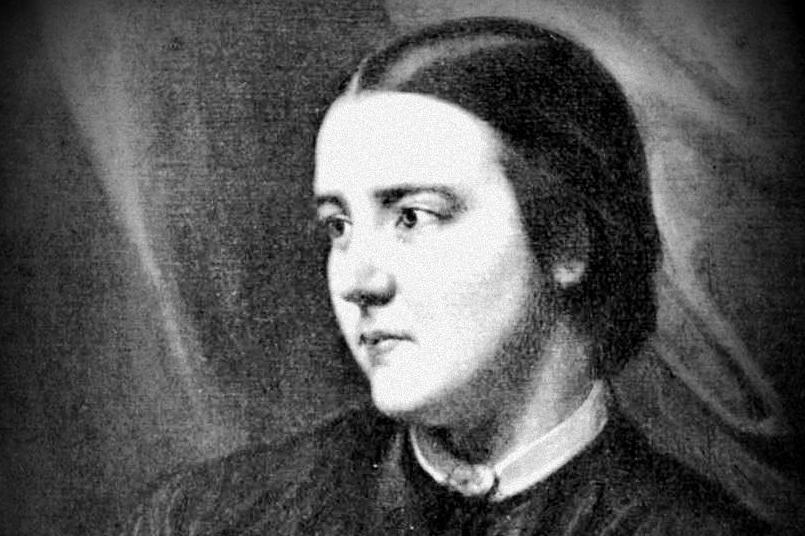Blue plaque commemorating pioneering female doctor on Harley Street rejected by English Heritage
‘She paved the way for the legislation that finally allowed women to graduate from university and qualify as doctors in the UK,’ says Fawcett Society chief executive

Your support helps us to tell the story
From reproductive rights to climate change to Big Tech, The Independent is on the ground when the story is developing. Whether it's investigating the financials of Elon Musk's pro-Trump PAC or producing our latest documentary, 'The A Word', which shines a light on the American women fighting for reproductive rights, we know how important it is to parse out the facts from the messaging.
At such a critical moment in US history, we need reporters on the ground. Your donation allows us to keep sending journalists to speak to both sides of the story.
The Independent is trusted by Americans across the entire political spectrum. And unlike many other quality news outlets, we choose not to lock Americans out of our reporting and analysis with paywalls. We believe quality journalism should be available to everyone, paid for by those who can afford it.
Your support makes all the difference.English Heritage has rejected a request to commemorate a trailblazing female doctor with a blue plaque on Harley Street despite two men being commemorated there.
Not one female physician is honoured with a plaque on London’s Harley Street — home to numerous private doctors since the 19th century.
Dr Sophia Jex-Blake, who died in 1912, spearheaded the battle for women to enter the medical profession and became the first female doctor in Scotland. She was also one of the first women to enrol at a British university.
The request for the plaque came from Queen’s College, the school at which Dr Jex-Blake was both a student and teacher.
Queen’s College has suggested an alternative location for the blue plaque that is half a mile from Harley Street on 14 Nottingham Place, where Dr Jex-Blake lived briefly during her four years at the college.
English Heritage has said it would potentially consider erecting it there but the school are unhappy with this, due to the property having been extensively remodelled since she lodged there — also arguing there is great symbolic value in putting up a blue plaque for her on Harley Street.
Sam Smethers, chief executive of women’s rights organisation Fawcett Society, said: “Dr Sophia Jex-Blake was undoubtedly a hugely important figure in the struggle for women’s right to higher education.
“As the founder of the Edinburgh Seven, she paved the way for the legislation that finally allowed women to graduate from university and qualify as doctors in the UK. The fact that there is no blue plaque to a female doctor on Harley Street clearly needs addressing.”
Ms Smethers argued Dr Jex-Blake is the “ideal candidate” to be remembered with the blue plaque.
Sir Stewart Duke-Elder, one of the most prominent ophthalmologists of the 20th century, and George Frederick Bodley, an English Gothic Revival architect, are both commemorated with a blue plaque on Harley Street.
Dr Jex-Blake, who was the third woman to practice medicine in the UK, and fronted the campaign to enable women to have a university education. She and six other women, called the Edinburgh Seven, began studying medicine at Edinburgh University in 1869.
They were mobbed by 200 people as they attempted to do an anatomy exam. The saga, which is now referred to as the Surgeons’ Hall riot, grabbed national headlines and earned the group new allies.
Emily Halstead, chair of the Feminist Society at Queen’s College, said: “Jex-Blake spent her years in London either studying or teaching here at Queen’s College on Harley Street; it was very much the centre of her London world and the institution which both inspired and equipped her academically for her groundbreaking career.”
Dr Jex-Blake, alongside Elizabeth Garrett-Anderson, a pioneering physician and suffragist, helped set up the London School of Medicine for Women in 1874. It was the first medical school to train women as doctors in Britain.
Only 14 per cent of blue plaques in London pay tribute to women but English Heritage has said they are striving to boost this number with their “plaques for women” campaign.
A representative for English Heritage said: “We wouldn’t commemorate Dr Sophia Jex-Blake on an educational building because of the multiplicity of figures associated with such buildings. This is clearly stated in our criteria and any exceptions are very rare.
“Our historian ascertained that there is a surviving building and we informed the proposer that we would welcome this address as a formal suggestion.”
Join our commenting forum
Join thought-provoking conversations, follow other Independent readers and see their replies
Comments